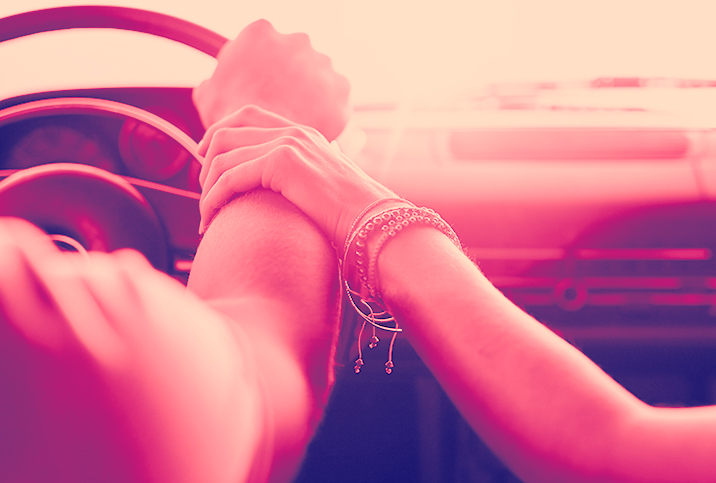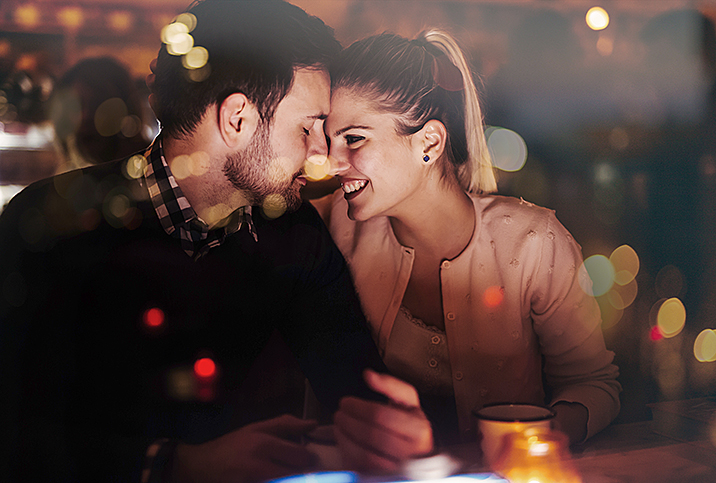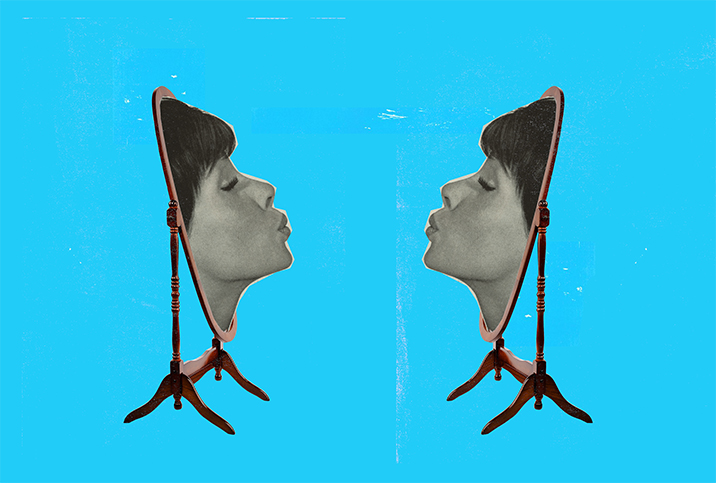The Feeling of Falling in Love

In every romance novel and movie in the zeitgeist, there's always a pivotal moment in the action when a character realizes they've fallen in love. Typically, this moment includes symbolism ranging from butterflies and weak knees to constant flashbacks at the most inconvenient of times.
In real life, though, it can be a little less earth-shattering.
Release the neurotransmitters
A survey conducted by dating site Elite Singles in 2017 indicated 72 percent of men and 61 percent of women believed in love at first sight. While the idea of instant love is as charming as it is contested, some of us prefer to rely on expert opinions to determine whether we're in love with the person we've been dating for five and a half weeks. After all, that moment of feeling dizzy when you're in their presence might just mean you're skirting anemia.
The American Psychological Association defines love as a complex emotion involving strong feelings of affection and tenderness for the object of your love, pleasurable sensations in their presence, devotion to their well-being and sensitivity to their reactions to yourself.
On a technical, physical level, love is a feeling borne of a series of chemical reactions in the brain. When you experience attraction to someone, your brain releases high levels of the neurotransmitters dopamine and norepinephrine (also known as noradrenalin). These hormones can make you giddy, energetic and euphoric, and even trigger insomnia and decreased appetite.
In other words, all the trademark symptoms of being lovesick.
Attraction or love?
According to Lisa Concepcion, a professional life coach in Miami Beach, Florida, who specializes in dating and relationships, a few common signs could indicate you may be falling in love.
For example, "When you think of the person, you cannot help but smile," she said. "You see a future with them and it's something very special that you're going to build together. You find yourself thinking about them often when you're not around them. You feel excited to see them. But, most importantly, when something good or bad happens to you, they're the first person that you want to tell."
She added there's no sense of nervousness when you're around the person. Their energy allows you to feel safe and at ease.
On a technical, physical level, love is a feeling borne of a series of chemical reactions in the brain.
Infatuation, on the other hand, is characterized by an intense sexual attraction to a person that doesn't always culminate in love, Concepcion explained. It's when you're able to look beyond the attraction and show genuine concern for the person's well-being that you've bought yourself a ticket to love. Are you constantly wondering if they're safe or if they got home OK? Are you willing to do things, however small, that could help make their life easier?
"Your feelings start progressing from infatuation to love," Concepcion said. "When you share goals and dreams and you start making plans for things you want to do together, there's a growing commonality and agreement within the relationship."
Make sure it's real
Love can sometimes be an evolving feeling, according to Tina B. Tessina, Ph.D., aka "Dr. Romance," a psychotherapist and author based in Long Beach, California. At all times, though, love creates a sense of trust based on mutual respect and reliability. She also emphasized the importance of taking your time to explore your emotions.
"Be suspicious of your early excitement. It's easy to be fooled by surface attraction," she said. "Make sure the person you're attracted to walks their talk. Get to know their friends. Friends will usually give you inside information about your attraction's past dating habits, old relationships and past reliability. Introduce your own friends to your attraction. If your friends are good friends, they'll give you a less biased opinion than your own. If all this checks out, your attraction has kept their promises and been reliable and you get along well together, then you have a basis for love."
Both Tessina and Concepcion encourage listening closely, very closely, to your instincts. Weak knees and butterflies are two reactions often associated with falling in love but are really your body's reaction to stress and nerves. Obsessing over your love interest and getting defensive in the face of the individual's flaws can be associated with affection and loyalty. But it could also be an indication that you've allowed your emotions and hormones to get ahead of you.
Should I tell them?
One of the most exciting, but nerve-wracking, signs of falling in love is wanting to confess your feelings to the object of your affection. It is arguably the moment we think about the most.
"It's a choice," Concepcion explained. "If you know that this is the person for you and you're having open and honest communication about what it is you want in life and you're on the same page, then it's nice just to tell somebody that you're in love with them. And that it's OK if they're not where you are, you'll wait for them to catch up."
More often than not, this is the point at which you'll know if your love will come to fruition.
Sometimes, a planned confession of your feelings might not be in the cards. If you're naturally wanting to share everything with them, you might just blurt out your feelings in a natural, utterly unmanufactured situation. That's completely OK, too. One of the most important signs you're falling in love with someone is realizing that while you're a whole person on your own, you're making a conscious choice to share every part of your life.
Wanting to communicate with and enjoy the person you're falling in love with is fueled by the human urge to develop and nurture relationships. If you decide this is real love, lean into the instinct and address your feelings, concerns and thoughts in ways that are constructive to the bond you're trying to build with your loved one.


















